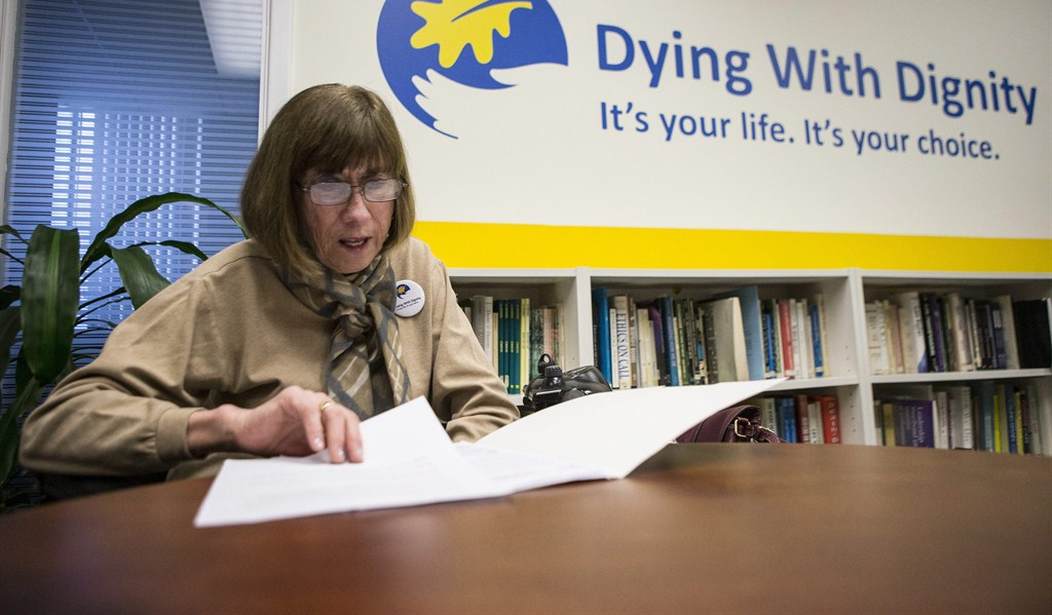In a nation that has sanctioned the murder of innocent babies and turned a blind eye to the nation’s largest abortion provider selling their body parts, it’s no wonder that a greater call for 'the right to die' at the other end of the life spectrum has come.
Lawmakers in California on Friday passed legislation that would legalize physician-assisted suicide. The bill passed the state Senate by a vote of 23-14, and will now head over to Gov. Jerry Brown’s desk.
Four states—Washington, Montana, Vermont, and Oregon—currently allow doctors to prescribe patients “medication” that will end their life. If Brown signs the bill he will “roughly triple access to doctor-assisted suicide across the country,” The New York Times notes.
The California bill is modeled on the law in Oregon, with several notable changes. The California law would expire after 10 years and have to be reapproved, and doctors would have to consult in private with the patient desiring to die, as part of an effort to ensure that no one would be coerced to end his or her life — a primary concern for opponents of the law.
Leaders of the “death with dignity” movement said they hoped the passage of the California law could be a turning point.
“It allows for individual liberty and freedom, freedom of choice,” said Mark Leno, a Democrat from San Francisco who compared the issue to gay marriage.
Since Oregon approved the country’s first assisted-suicide law in 1997, supporters have struggled to expand their reach, amid opposition from religious groups, some medical organizations and lawmakers whose skepticism crosses party lines.
Recommended
Republican Sen. Ted Gaines, for example, warned about the “unintended consequences of this legislation.”
“I’m not going to push the old or the weak out of this world,” he said on the floor.
Beyond dangers for the old and weak, Dr. Aaron Kheriaty, director of medical ethics at UC-Irvine's School of Medicine, also cautioned how this legislation will affect low-income and underinsured patients, regardless of the bill's provision about coercion.
He pointed to a case in Oregon involving Barbara Wagner, a cancer patient who said that her insurance plan had refused to cover an expensive treatment but did offer to pay for “physician aid in dying.”“As soon as this is introduced, it immediately becomes the cheapest and most expedient way to deal with complicated end-of-life situations,” Dr. Kheriaty said. “You’re seeing the push for assisted suicide from generally white, upper-middle-class people, who are least likely to be pressured. You’re not seeing support from the underinsured and economically marginalized. Those people want access to better health care.”
In a recent interview with Townhall, Kheriaty warned that “once you introduce the principle into law that doctor-assisted suicide is a reasonable response to difficult life circumstances—based on either the pain and suffering argument, or the autonomy argument—then, the fences that legislators try to enact around it are inevitably arbitrary.”
No matter what proponents of the 'right to die' movement say, there is a slippery slope to this type of legislation. All one has to do is look at what has happened in Europe with similar measures. In Belgium, what began as voluntary assisted suicide for mentally competent adults has now reached the point where more than 1,000 people have been involuntarily euthanized. The nation also became the first in the world to remove age restrictions for euthanasia, thus legalizing assisted suicide for children.
Is this where we're heading as a nation?

























Join the conversation as a VIP Member